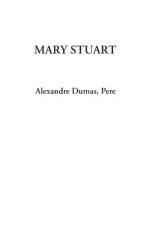Bourgoin went to Sir Amyas, who, as he himself was troubled with sciatica, should have understood better than anyone the need of the remedies for which the queen asked. But this request, simple as it was, raised great difficulties. Sir Amyas replied that he could do nothing without referring to his companion, Drury; but that paper and ink might be brought, and that he, Master Bourgoin, could then make a list of the needful plants, which they would try to procure. Bourgoin answered that he did not know English well enough, and that the village apothecaries did not know enough Latin, for him to risk the queen’s life for some error by himself or others. Finally, after a thousand hesitations, Paulet allowed Bourgoin to go out, which he did, accompanied by the apothecary Gorjon; so that the following day the queen was able to begin to doctor herself.
Mary Stuart’s presentiments had not deceived her: Tuesday, February 17th, at about two o’clock in the afternoon, the Earls of Kent and Shrewsbury, and Beale sent word to the queen that they desired to speak with her. The queen answered that she was ill and in bed, but that if notwithstanding what they had to tell her was a matter of importance, and they would give her a little time, she would get up. They made answer that the communication they had to make admitted of no delay, that they begged her then to make ready; which the queen immediately did, and rising from her bed and cloaking herself, she went and seated herself at a little table, on the same spot where she was wont to be great part of the day.
Then the two earls, accompanied by Beale, Arnyas Paulet, and Drue Drury, entered. Behind them, drawn by curiosity, full of terrible anxiety, came her dearest ladies and most cherished servants. These were, of womenkind, the Misses Renee de Really, Gilles Mowbray, Jeanne Kennedy, Elspeth Curle, Mary Paget, and Susan Kercady; and of men-kind, Dominique Bourgoin her doctor, Pierre Gorjon her apothecary, Jacques Gervais her surgeon, Annibal Stewart her footman, Dither Sifflart her butler, Jean Laudder her baker, and Martin Huet her carver.
Then the Earl of Shrewsbury, with head bared like all those present, who remained thus as long as they were in the queen’s room, began to say in English, addressing Mary—
“Madam, the Queen of England, my august mistress, has sent me to you, with the Earl of Kent and Sir Robert Beale, here present, to make known to you that after having honourably proceeded in the inquiry into the deed of which you are accused and found guilty, an inquiry which has already been submitted to your Grace by Lord Buckhurst, and having delayed as long as it was in her power the execution of the sentence, she can no longer withstand the importunity of her subjects, who press her to carry it out, so great and loving is their fear for her. For this purpose we have come the bearers of a commission, and we beg very humbly, madam, that it may please you to hear it read.”




